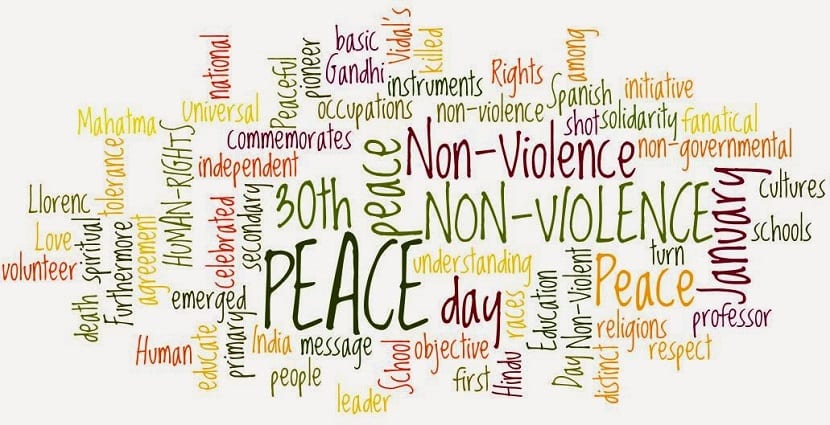
Violence is part of today's society, unfortunately. Somehow, we accept violent acts as an answer in any situation. We normalize rude words, aggressive gestures and yelling, as if using them is the best way to respond when something is contrary to us. Violence is present on television, in games, on the streets and in the homes themselves.
Thus, violence is instilled in children as a defensive weapon even when it is not necessary. Children who live surrounded by violence, negative and aggressive acts, grow up thinking that this is normal and therefore, they adopt the same attitude towards life. And the only thing violence will bring in your life will be loneliness, problems, conflicts and difficulty in maintaining stable social relationships.
Educate in NO violence It is essential, since there is no use hiding what is negative about children's lives. Because, even if your child does not receive violent acts at home, you may receive them from many other sectors. You must prepare your child for these types of situations, so that when the time comes, he knows how to face an uncomfortable situation without resorting to violence.
Educate in NO violence
This is a joint work of teachers, parents and people who care for and influence children's behavior on a daily basis. Therefore, it is essential to educate children in non-violence, teach them from a very young age the benefits of negotiation, how important dialogue is and empathy to know how to resolve conflicts peacefully.
But for this message to sink deeply into the education of children, it is essential that parents themselves and the adults around them, be the example that the little ones need. On many occasions, bad words are used, the voice is raised to answer those closest to them, even their own children. In what way do we pretend that the child negotiates and does not use violence to communicate, if it is the message you receive every day.
Common habits to avoid at home
Habitually and without any intention, small disrespects are committed on a daily basis, ugly words and even, bad taste jokes that are intended to amuse everyone, except who receives the joke. All these are acts that should be avoided at home, so that children do not receive the wrong message and do not take this practice to school, since in this way, it begins Bullying.

So that it is important to control the way you speak at home, how violent words and acts are used. Whether at home, driving or when you have a bad day and lose your patience.
- Avoid using labels: It is time to stop labeling people for their characteristics or peculiarities. Children could transfer this behavior to their social environment and this would seriously damage their relationship with their peers.
- Caution when using irony in front of children: Little ones don't understand sarcasm and can easily get confused.
Tips to educate children about NO violence

It is at home where they must instill the values of respect, empathy, generosity and the nobility, all of them fundamental to healthy social relationships.
- Control the violence children see through television. Make sure the programming is appropriate for their age, even if they are not sitting in front of the television. Even if the child is not paying attention, if you have a program where violent scenes or screams appear, it will reach the little one.
- Never reward a violent attitude. Children use crying, yelling, and tantrums to get what they want. Avoid rewarding that attitude, with firm words and without using violent acts or bad words.
- Bad acts have consequences. Children must be clear about the rules and what you expect from their behavior.